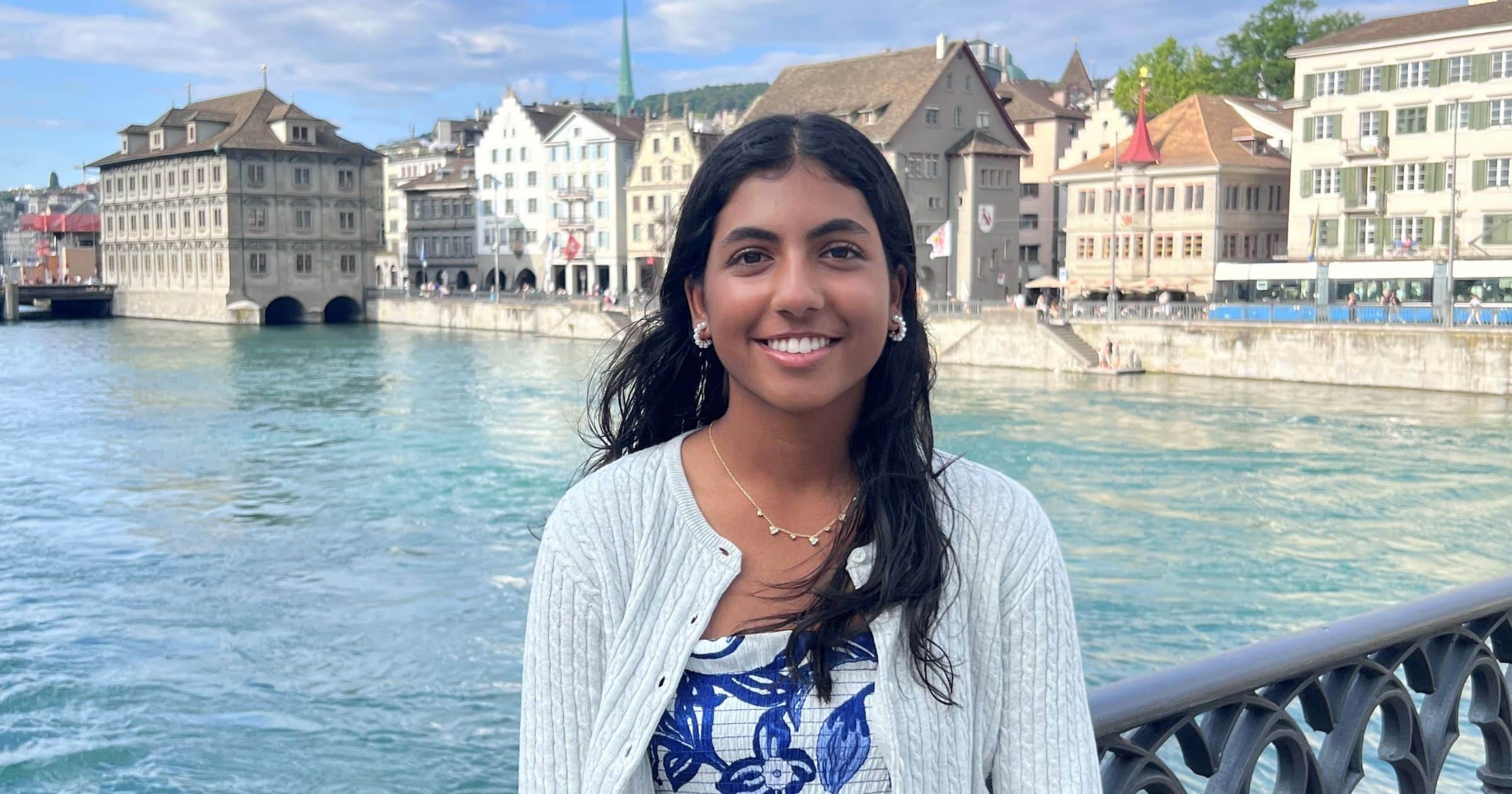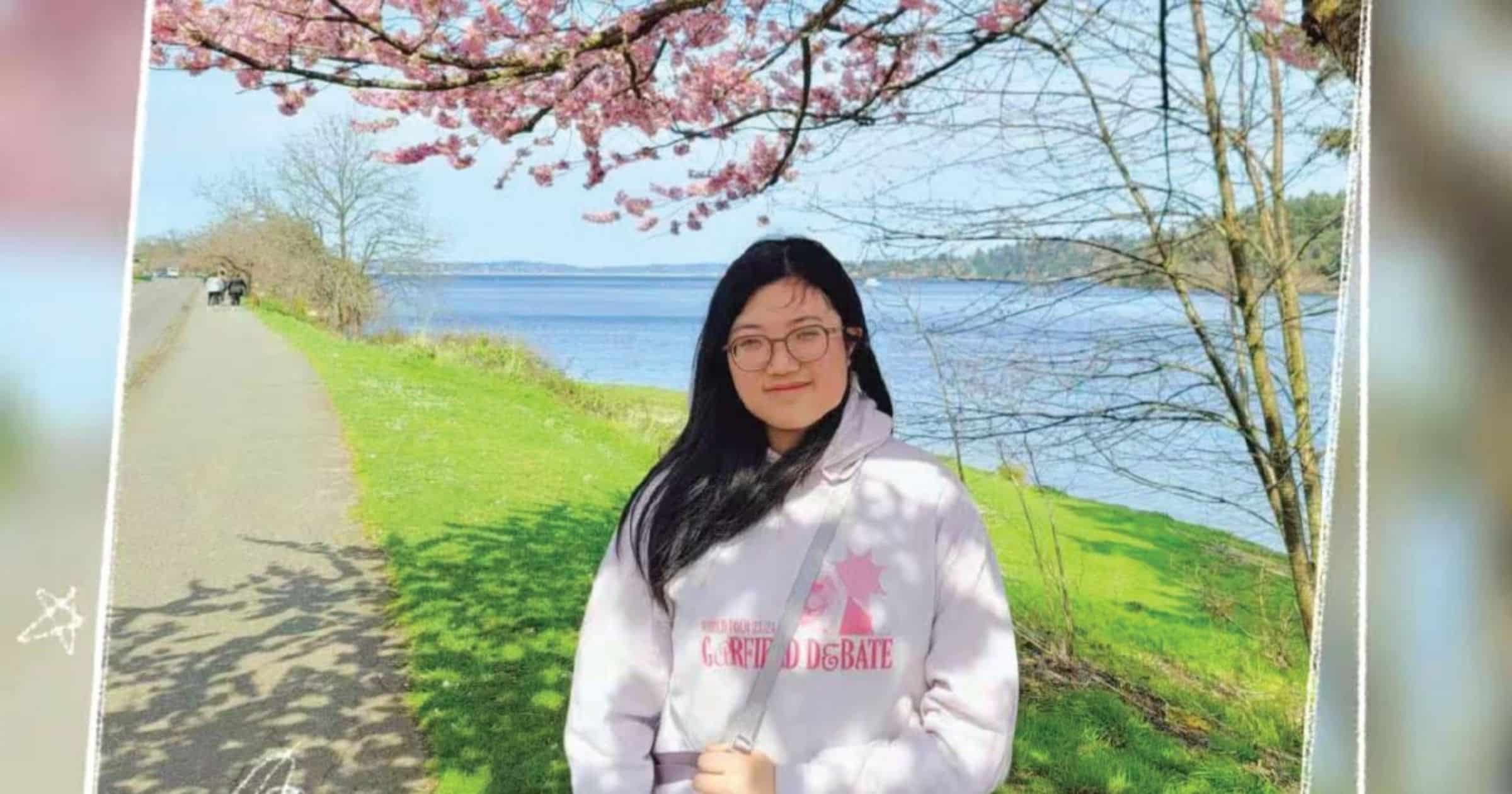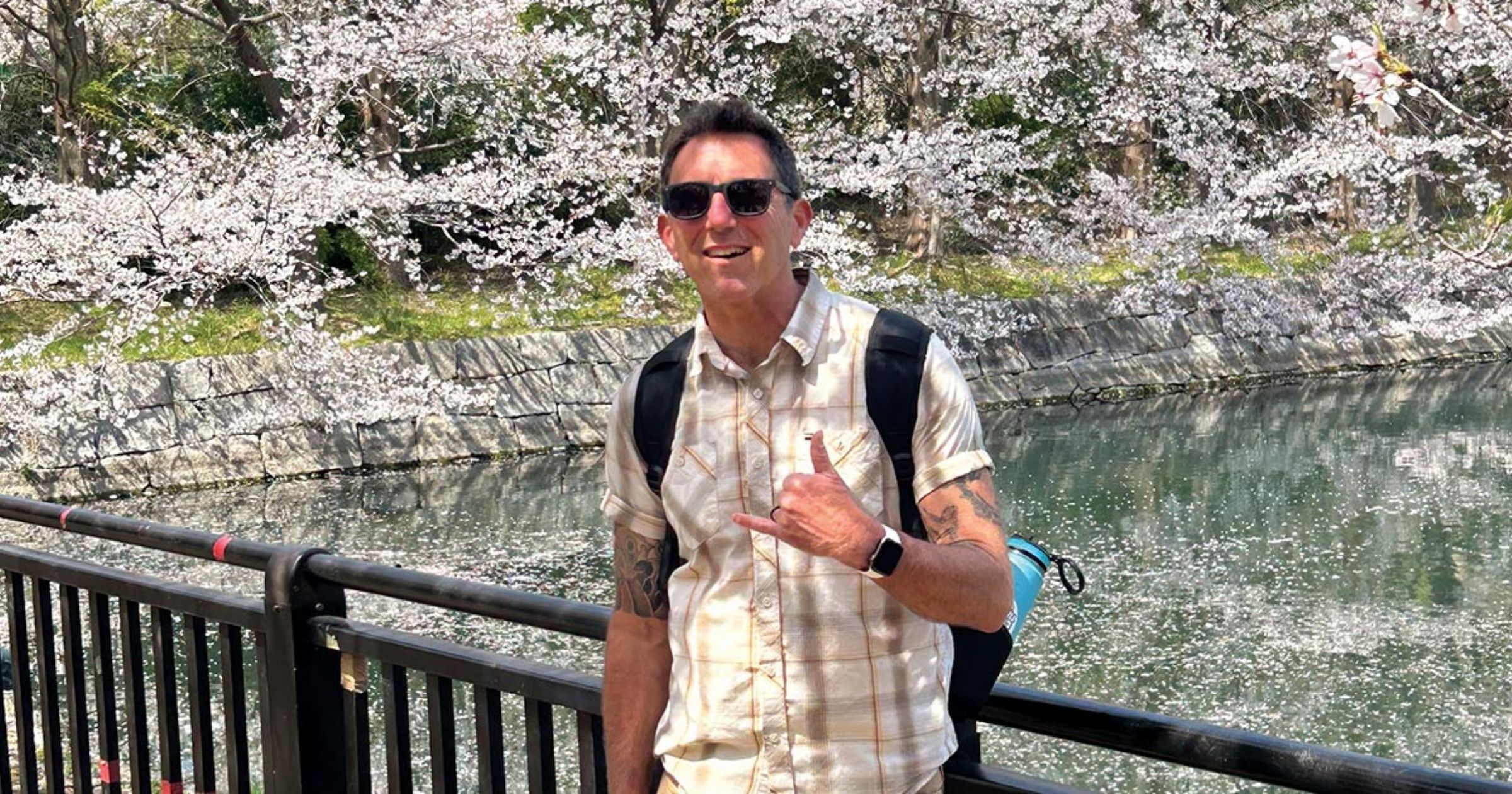In Terke, India, the village my grandpa grew up in, life hit the slow-motion button. Cattle leisurely roam the fields, and cow patties decorate the unpaved dirt roads.
Hearing my nana’s stories about his upbringing here, I never truly believed I’d get the chance to experience it firsthand, alongside him. As we arrive mid-morning, the dissipating haze leaves the sun to cast its warm glow across the land. Today, our destination is the village’s only school.
Upon our arrival, the students greet us eagerly, adorning us with phool necklaces made of vibrant sunset orange marigolds and the traditional red sindoor decorating the bridge of our noses. The older students wear green kurta pajamas, while the little ones sport pink ones. The excitement on the children’s faces as they see us is palpable. “Americans!” they must be thinking. I’m taken aback by the realization that I’m considered a celebrity by these children. The school, a concrete building funded by my grandpa’s efforts, stands proudly, its pillars painted in faded shades of orange, white, and green—the colors of the national flag.
In the courtyard, layered with dirt and dust, we distribute Chota Bheem and Spiderman backpacks filled with notebooks and pencils. Sharing a meal of poori and jalebi with the students, I’m overwhelmed with gratitude. The other teachers follow as my nana presses his palms together and holds them to his face. Tears well up in my eyes, and I swallow hard, feeling the depth of their gratitude. In that moment, life feels undeniably right.
“Beti tum badi ho gayi ho,” the family greets me after the event. In a country so far from home, I’ve never felt more welcomed and appreciated. It’s here that I begin to grasp the impact of my privilege and my nana’s influence on the lives of children who share our race and heritage. Alongside these moments of awe and wonder, I’m confronted by the harsh realities that afflict many lives—poverty, inequality, environmental degradation. These negatives cannot be ignored. But neither shouldn’t the positives.
Throughout my three weeks in India, spanning various cities, I’m filled with gratitude and hope. I’ve experienced moments of immense beauty and witnessed the struggles that accompany them. It’s a journey that has taught me not to judge a book by its cover, to embrace both the positives and negatives, and to recognize the importance of giving back and how we can work together to change the lives of many.
As I reflect on my travels, I realize how they’ve deepened my connection to my culture and broadened my perspective. Traveling has become an integral part of my life, allowing me to understand the diverse ways of living and appreciate the privilege I’ve been afforded. I believe everyone should have the opportunity to experience the world’s wonders.
Written by Leela Basole, 14, a Freshmen in Atlanta, Georgia, for the World Is A Classroom Essay Contest.
Photo courtesy of Leela Bosole.




